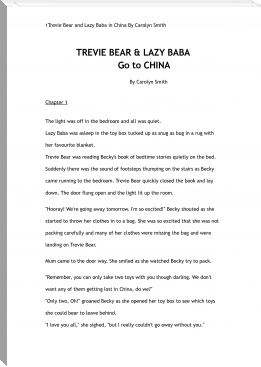Chasing the Sun, Robert Michael Ballantyne [reading tree txt] 📗

- Author: Robert Michael Ballantyne
Book online «Chasing the Sun, Robert Michael Ballantyne [reading tree txt] 📗». Author Robert Michael Ballantyne
When they returned to the schooner after that excursion, Captain McNab was leaning over the side with a grim smile on his wooden countenance. Bob Bowie was beside him with a beaming smile on his jolly red face.
"Good-day, Captain," cried Fred, as the boat drew near. "Well, Bowie, we're desperately hungry, I hope you've got supper ready for us."
"I've got breakfast, sir," replied the steward.
"Eh? ah! well, call it what you like, only let us have it soon." (They clambered up the side.) "Why, Captain, what day is it, and what time of day?"
"It's Friday mornin', sir, and eight o'clock."
Fred opened his eyes in astonishment.
"Why, then, comrades, it seems that we have been shooting, sketching, and fishing all night by daylight, and the sun has set and risen again without our being aware of the fact! So much for perpetual day and a cloudy sky. Come, Bob Bowie, look alive with break--, ah! supper, I mean, for whatever it may be to you, it is supper to us. Meanwhile, I'll have a bathe to refresh me."
So our hardy adventurers bathed that morning, over the side, then they supped, after which they turned in and slept all day, and rose again at six o'clock in the evening to breakfast!
CHAPTER SEVEN.
A SUNDAY ON SHORE.
Only once during their voyage along the rugged coast of Norway did our three friends go to church! It must not be supposed, however, that therefore they were heathens. Far from it. Fred and his companions were truly Christian men. That is to say, they not only called themselves Christians, but they made it their earnest aim to walk after the example of Christ, and to exhibit their Christianity by their deeds. But only once during their trip had they the opportunity of visiting a church on a Sunday forenoon when service was going on.
It happened to be on a bright calm Sunday. There was just enough of wind to urge the _Snowflake_ through the water at the rate of two miles an hour. Fred's usual custom was to get to a secure anchorage on Saturdays, so as to be able to spend the Sabbath as a day of rest. But this was not always practicable, because the water was so deep close inshore that no bottom could be found in many places, and often they were obliged to continue their voyage on Sunday. This, however, was a matter of small importance, because the working of the yacht required so little attention--especially in fine weather--that it did not interfere with the services or the rest of the day. Fred made a point of assembling the crew and reading the Church of England service every Sunday forenoon, and a chapter or two from the Bible in the evening.
On the present occasion they were all assembled on the quarterdeck joining in the morning service. The breeze was steady, and the steersman was the only man on duty, but he was not thereby prevented from attending to what was being read. The vessel was gliding along close under a precipice which towered high above the mast, and, at a short distance ahead, extended out in a bold promontory or headland. Elsewhere mountainous islands hemmed them in.
When they reached the promontory Fred was reading that beautiful Psalm, the 95th,--which appeared somewhat appropriate to the occasion.
"O come, let us sing unto the Lord: let us heartily rejoice in the strength of our salvation.
"Let us come before His presence with thanksgiving, and shew ourselves glad in Him with psalms.
"For the Lord is a great God, and a great King above all gods.
"In His hand are all the corners of the earth: and the strength of the hills is His also.
"The sea is His, and He made it: and His hands prepared the dry land.
"O come, let us worship and fall down: and kneel before the Lord our Maker."
Fred happened to look up at the last words, and an exclamation of wonder broke from him as he pointed towards the shore. The schooner had just doubled the towering promontory, and a new scene had been suddenly opened up to view.
Just beyond the promontory the coast-line took an abrupt bend to the right, at the end of which was a sequestered little bay, with a beach of yellow sand, and a cluster of grassy mounds behind, of the brightest emerald green. The bay and the green mounds and the strip of yellow sand were all exceedingly small, and were surrounded by a mass of rugged rocks of a cold, whitish-grey colour. Beyond these were the great purple mountains of the mainland. Ahead and in front towered the islands of the coast. The whole of the surrounding scenery was wild, rugged, and barren. This one little spot alone was soft and lovely; it shone out like a bright jewel from its dark setting. All round the bay were clustering cottages, with white walls and red roofs,--some on the sides of the mounds, others perched on rocks that projected out into the sea. On the highest of these mounds stood a church, and in the bay floated a large Norwegian vessel and numerous small boats.
The promontory round which the _Snowflake_ had just passed completely sheltered this bay, so that the water was like a sheet of glass, in which everything--boats, rocks, mounds, cottages, and church--was clearly reflected.
The church-bell was ringing. It was a small bell, and its sweet sound came floating softly over the sea to the ears of our voyagers like an old familiar hymn. The interest of this scene was further enhanced by the assembling of the people to church. Boats were seen pushing off from every island, issuing from every creek, rowing over the calm water, and all converging towards the little bay with the yellow strand. Each boat was crowded with men, women, and children; and as the men wore red caps, and the women white kerchiefs on their heads, their appearance was quite brilliant. In other respects, their clothes being all homespun and of one dark colour, their aspect was sombre enough. So numerous were the boats, and so suddenly did they make their appearance, that it seemed as if the land were being invaded by a foreign host.
All this was taken in at a glance by the yacht party as they doubled the promontory, and glided slowly into the bay.
"This is our anchorage," said the Captain.
"Very well, let go the anchor, and we will finish the service after it is down," said Temple, rising and taking up the telescope to examine the groups of people on shore.
As each boat discharged its load on the little stone pier, the males and females separated into two distinct bands and walked slowly and sedately towards the church, at the door of which the whole congregation assembled, still keeping in two separate bands, to await the arrival of the clergyman.
In a few minutes the rattle of the chain announced that the anchor was down. The sails were dewed up, and service was continued.
"Now," said Fred, when he had concluded, "lower the boat, Captain--I will go to church. Will any one of you join me?"
"What's the use of my going?" said Sam Sorrel; "I won't understand a word."
"You're not sure of that," said Grant. "Besides it is so long since we've been to church, that I feel as if I should enjoy it whether I understand it or not."
"If it don't do you no good, sir, it can't do you no harm," urged Bob Bowie, who was evidently anxious to get ashore.
"Come along," cried Fred, jumping into the boat, and taking his seat in the stern-sheets.
He was quickly followed by his companions and by honest Bob, whose delight in a ramble on shore was only equalled by his love for a voyage on the sea!
"Ain't it an xtroar'nary church, sir?" said Bob, sidling up to Temple and touching his hat, as they ascended the green mound on which the building stood.
"It is, Bob, most remarkable," replied Fred.
To say truth, there could not be two opinions on this point. The church was of very peculiar and curious form. It was more like a number of dove-cots placed together than anything else; those dove-cots, I mean, which have sloping roofs, and are frequently seen nailed against the sides of houses in country places. Take four such dove-cots and place them back to back so as to form a sort of square; on the top of these place three more dove-cots, also back to back; above these set up two more dove-cots, and one on the top of all, with a short steeple above it, and a spire with an enormous weathercock on the top of that, and the building will not be a bad model of a Norwegian church, especially if you paint the sides white, and the gabled roofs blackish-red.
Inside, this church was found to be exceedingly plain, but very clean. The pews and galleries and walls were of unpainted fir, and the ceiling was whitewashed. The entire building was utterly devoid of ornament, except round the altar, above which there was a large crucifix and a few candles, and other things somewhat resembling those used in Roman Catholic worship.
The service had begun some time before the arrival of our friends. It was a Lutheran church, and the ceremonial resembled that of the English Church in some respects, that of the Roman Catholic in others.
The entrance of so many strangers of course created some sensation, even although they entered as quietly as possible and sat down on the first seats they found vacant. The people seemed to have native politeness in them. They could not, indeed, resist the temptation to look round, but they did it modestly, and only indulged in glances, as if they felt that it was rude to stare at strangers.
Unfortunately Bob Bowie had not been warned that it is the custom in Norway for the men to sit together on one side of the church and the women on the other side, and, being rather a stupid man in some matters, he did not observe that the door by which he entered led to the women's pews. Being by nature a modest man, he cast down his eyes on entering, and did not





Comments (0)